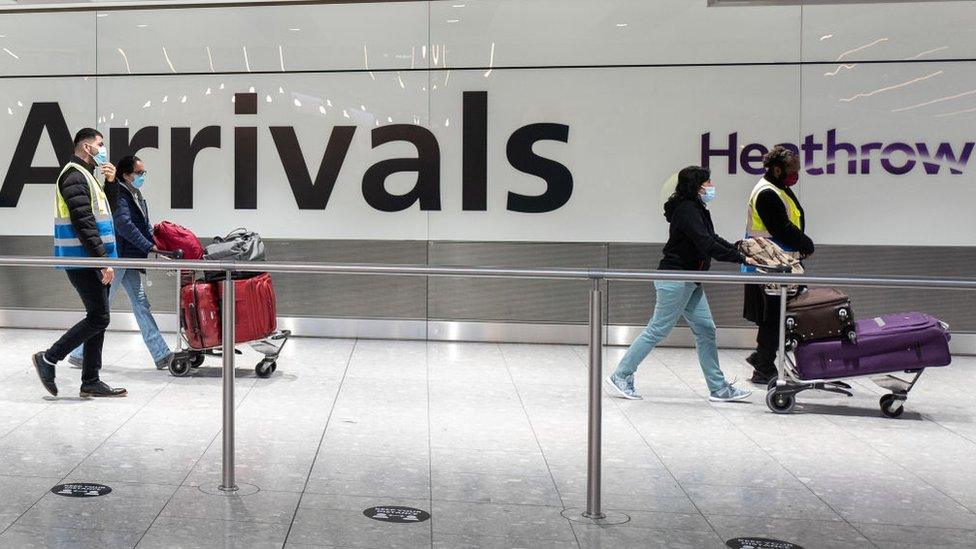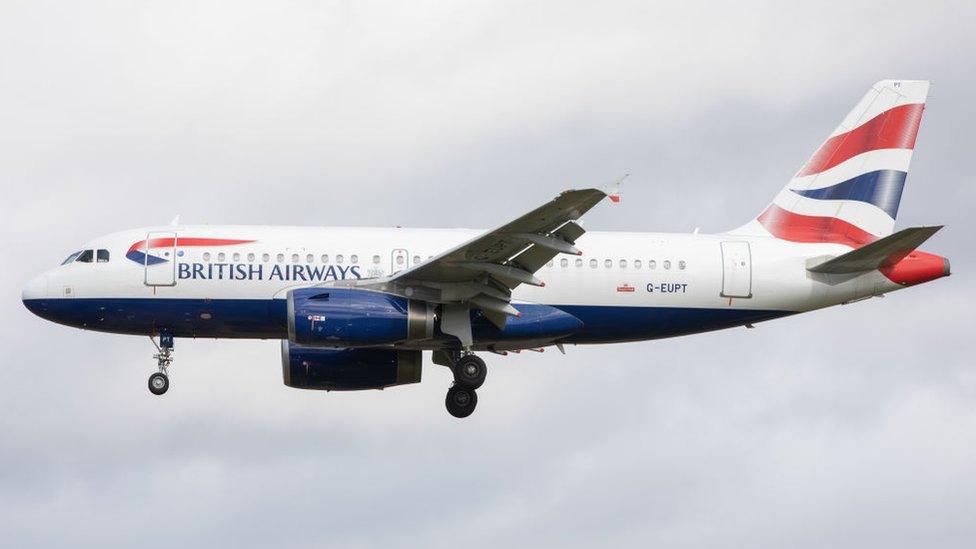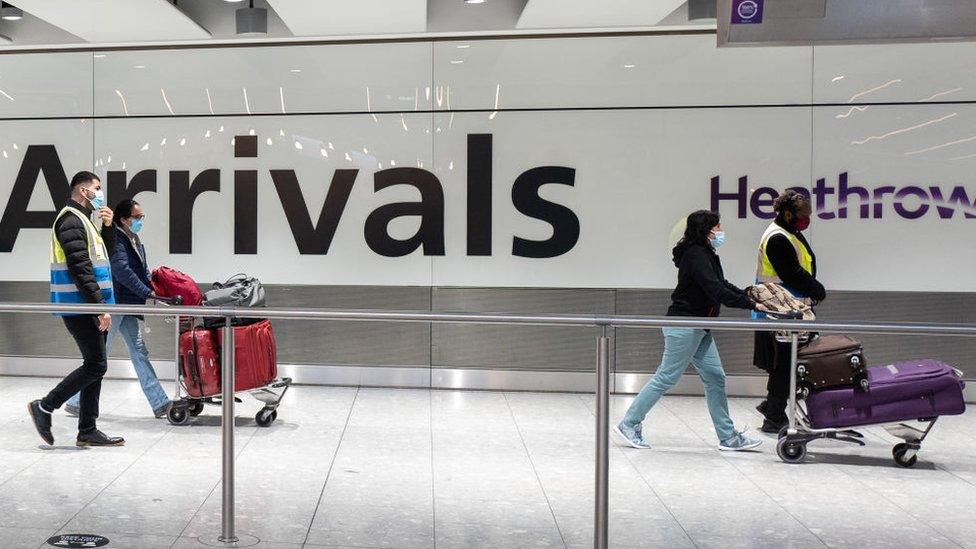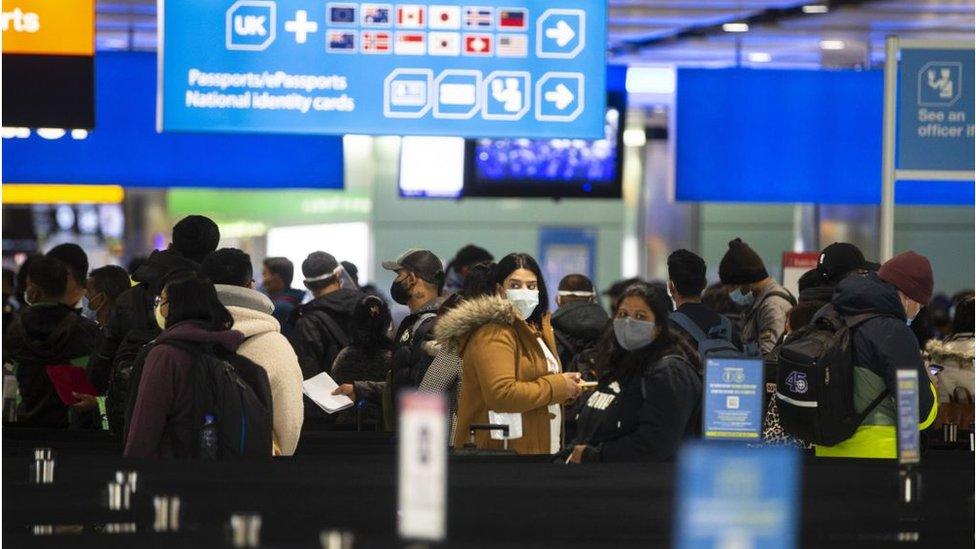Heathrow loses bid to raise airport charges by 10%
- Published

The Civil Aviation Authority (CAA) has rejected a "disproportionate" request for funding from Heathrow which would have hiked airport charges by 10%.
Heathrow is attempting to offset losses incurred because of the pandemic.
CAA has instead sanctioned a smaller increase which will allow Heathrow to fund the reopening of terminals as air traffic begins to recover.
The CAA regulates what Heathrow can charge users, such as airlines.
Those airlines can then choose to pass on the charges to their passengers.
Heathrow had asked to increase charges to recover around £2.6bn which has been lost due to the sharp drop in airline traffic because of the coronavirus.
The CAA said this would have increased airport charges by 10%, amounting to roughly £2 per passenger.
It said this would be "disproportionate and not in the interest of consumers".
The investment costs that the airport can recover and the profit it can make are calculated according to its regulated asset base - a figure intended to represent the economic value of the business.
Heathrow had asked for this figure to be increased by £800m immediately and by a total of £2.6bn by the end of 2021.
While the CAA rejected this request, it said it recognised that the current circumstances were "exceptional" and created potential risks to consumers in the short-term.
It therefore allowed an increase of £300m in Heathrow's regulated asset base, to "incentivise Heathrow Airport Limited to plan effectively, reopen its terminals in a timely way for a summer recovery".
This will lead to an increase in charges of around 30p per customer. The CAA said that issues raised by Heathrow could be considered during the next review of charging levels at the airport.
'Deep frustration'
Heathrow said the CAA had recognised the need for action to support its business, but had "failed to deliver".
It said this would undermine investor confidence in UK regulated businesses, and put the government's infrastructure agenda at risk.
Meanwhile, British Airways-owner IAG said it was "extremely disappointed" with the CAA´s decision to grant even a smaller increase which it said "will unfairly penalise consumers".

"Post-Brexit this makes the UK even less competitive and will drive traffic to other airports. We're assessing our options," it said.
The International Air Transport Association (IATA), which represents the airline industry, also expressed "deep frustration" at the CAA's decision.
IATA director Willie Walsh, who was the boss of IAG until last year, said the CAA had "caved to pressure from Heathrow" and said consumers will end up "paying millions more" to travel.
"This is the time when everyone in aviation should be pulling together to reduce costs and rebuild an important sector of the economy, not seeking to cover losses on the tab of its customers," Mr Walsh said.
"Irrespective of our next steps to counter the damage of this decision, we do agree with the finding of the CAA that Heathrow must invest in better services for airlines and travellers."
- Published21 April 2021

- Published14 April 2021
